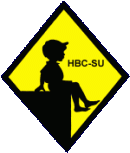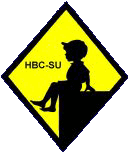
English School Uniform: Garments--PE and Game Kits

Figure 1.--Here we see an English boy, probanly at a prep school in the 1950s, kitted out for cricket. Boys who made the squad were commonly awarded a special cap, the British equivalent of an American sports letter. Here he wears cricket whites, but regulr kne socks and sandals instead of white knee socks and cricket boots.
|
|
The British call gym uniforms Physical Education (PE) kits. Americans may recall the phrase "kit bag" in the song "Pack of your troubles in your old kit bag," here referring to a duffle bag for an army uniform. An English reader tells us, "At all the schools I attended the pe kit was white t shirt, white nylon shorts, no underwear in the junior schools then at senior school we had to wear an athletic supporter for pe and football and a cricket jock and a box for cricket. All sports were followed by showers. I enjoyed pe and cricket but wasn't keen on football, as we were coverd in mud and sometimes played in the rain." Other reader report different practices, especially in their primary (junior) schools. Often boys in primary schools just wore their ordinary school shorts. A reader has provided us an account of gym in his primary school. Anoter reader tells us about his school PE kits in the 1950s ahd 60s. Many schools had regulation black plimsols (tennis shoes) for gym. There were also a range of sports or games uniforms. These varied depending on the particular sport. The major sports played in England are cricket, football (soccer, hockey, and rugby. Cricket uniforms were destinctive because they were white. Hockey uniforms varied. Rugby uniforms are more colorful. Many other sports are played, but this varied from school to school.
Terminology
The British call gym uniforms Physical Education (PE) kits. Americans may recall the phrase "kit bag" in the song "Pack of your troubles in your old kit bag," here referring to a duffle bag for an army uniform.
Types of Schools
Programs varied depending on the type of school. State schools tended to have gym classes, but not majoe sports programs called 'games'. The private schools had gym, but fargreater emphasis was placed on sports. There was often a major part of the afternoon devoted to games. At day schools the younger children in prep scgools went home early and the older boy stayed for games. At the seondary level all the children participated in afternoon games.
English boarduing schools" (elite places like Eton, Harrow, Winchester, etc.) do have
exercise programs, but I'm not certain how mandatory they are. Many famous graduates of Eton and Harrow, for instance, hated what they called "games" but were made to participate whether they wanted to or
not. But "games" were quite different from simple PT (physical training).
We do not yet have much chroological information about English PE uniforms. We know that there wre very significant differences between the uninforms worn by boys and girls and this only began to change after World War II. Before the War, girls commonly wore middy blouses, bloomers, and even long sockings. Boys commonly wore sjort pants, often quite long ones until World War II. Long stockings were worn by both boys and girls in the early-20th century. Trends were somewhat different in primary and secondary schools. We note plain white shirts, both "T"-shirts and singlets, and white shorts at many schools. By the 1970s webegin to see shirts with school logos, sometimes in colors. Plimsols were often worn for gym lessons. Some children went barefoot.
PE Uniforms
An English reader tells us, "At all the schools I attended the pe kit was white t shirt, white nylon shorts, no underwear in the junior schools then at senior school we had to wear an athletic supporter for PE and football and a cricket jock and a box for cricket. All sports were followed by showers. I enjoyed PE and cricket but wasn't keen on football, as we were coverd in mud and sometimes played in the rain."
Anoter reader tells us about his school PE kits in the 1950s ahd 60s. Many schools had regulation black plimsols (tennis shoes) for gym.
Other reader report different practices, especially in their primary (junior) schools. Often boys in primary schools just wore their ordinary school shorts. A reader has provided us an account of gym in his primary school. We noticed that at prep schools that the children changed into PE uniforms. There were, however, many exceptions. Some schools without sports fields or changing rooms would have the boys do PE in their school uniforms, perhaps chanhing into trainers/plimsols. We see boys doing PE still wearing their ties. At other schools there seems to have been times when the boys did not chsnge depending on the schhedule. This often occurred when their was not a full afternoon for games. And some times the particular acrivity affected if they changed. They would always chsnge for Rigby, but sometimes not for cricket.
Sports Gear
There were also a range of sports or games uniforms. These varied depending on the particular sport. The major sports played in England are cricket, football (soccer, hockey, and rugby. Cricket uniforms were destinctive because they were white. Hockey uniforms varied. Rugby uniforms are more colorful. Many other sports are played, but this varied from school to school.
Individual Experiences
HBC readers have mentioned their PE uniforms in their childhood accounts. David tells us about his school experiences, including phsical education. Laura tells us about the unforms at the several schools she attended in the 1980s-90s.
HBC-SU

Navigate the Boys' Historical Clothing School Uniform Pages
[Return to the Main English School Garment Page]
[Return to the Main School Uniform Trouser Page]
[Return to the Main School Uniform Page]
[Australia]
[Main England page]
[France]
[Germany]
[Italy]
[Japan]
[New Zealand]
[Scotland]
[Singapore]
[South Africa]
[United States]
Navigate the Boys' Historical Clothing Web Site:
[Introduction]
[Activities]
[Biographies]
[Chronology]
[Clothing styles]
[Countries]
[Topics]
[Bibliographies]
[Contributions]
[FAQs]
[Glossaries]
[Images]
[Links]
[Registration]
[Tools]
[Boys' Clothing Home]
Created: 10:45 PM 3/2/2009
Last updated: 7:43 PM 1/16/2012




